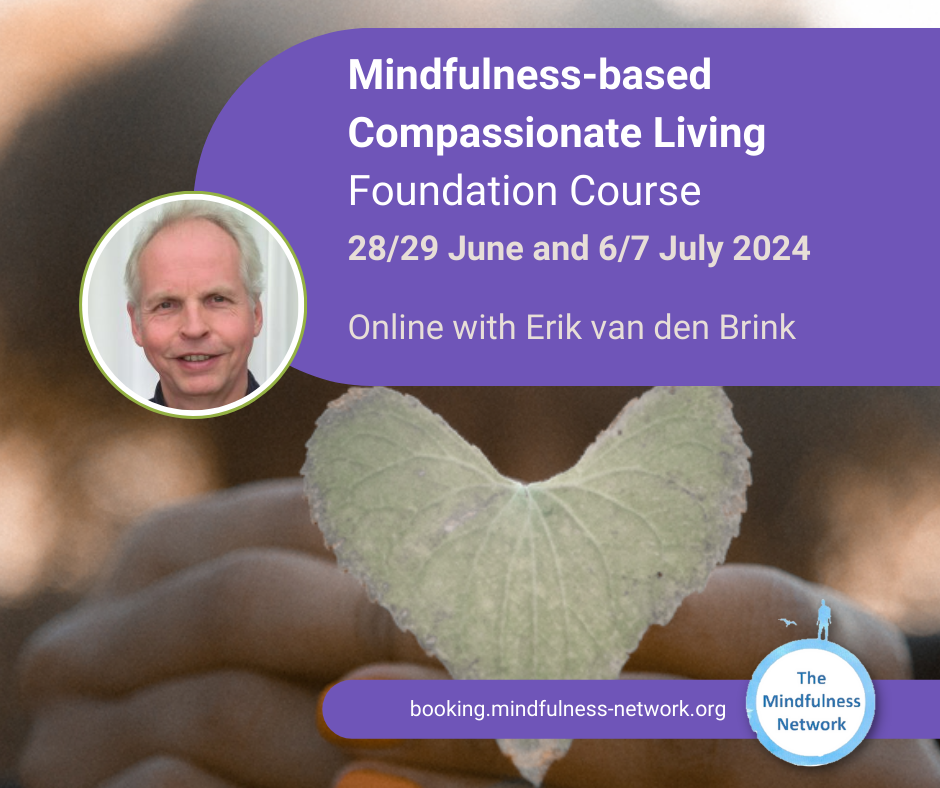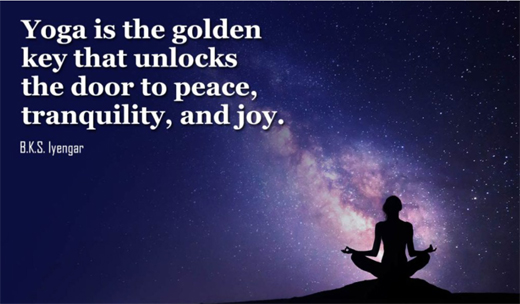
- This event has passed.
Compassion: Mindfulness-based Compassionate Living Foundation Course with Erik van den Brink
June 28, 2024 @ 2:00 pm - July 7, 2024 @ 9:00 pm BST
£390

28th & 29th June: 2-5.30pm and 7-9pm
6th & 7th July: 2-5.30pm and 7-9pm
Please arrive online a few minutes before the start time.
All times are UK, BST (British Summer Time). If you are attending from a different time zone, please check equivalent timings in your time zone.
What is Compassion?
Compassion is the capacity to be sensitive to the suffering of ourselves and others and the willingness to relieve and prevent it (Paul Gilbert, 2014). It is a capacity inherent in all of us but for many reasons does not always come to flourish. Fortunately, it can be trained, developed and deepened through practice. Compassion is characterised by kindness and receptivity as well as courage and responsibility. Many believe compassion should be directed towards others rather than ourselves but self-compassion is not selfish. Research increasingly shows that self-compassion is – like mindfulness – key to mental health and goes hand in hand with greater openness and empathy towards others.
What is Mindfulness-Based Compassionate Living (MBCL)?
MBCL is a mindfulness-based eight-session course that supports the development and training of (self-)compassion to enhance physical, emotional and relational health and well-being. It is suitable as a follow-on course following foundational mindfulness-based programmes (MBSR, MBCT or equivalent).
Developed since 2008 by Erik van den Brink and Frits Koster, MBCL is grounded in science and in the decades-long experience of its two founders. Erik van den Brink brings to MBCL his experience as a psychiatrist and psychotherapist, expert on mindfulness in mental health settings and long-time meditator. Frits Koster integrates his work as a Vipassana teacher, a trainer in MBSR & MBCT, his expertise in Buddhist psychology and his work as a mindfulness trainer for mental health professionals.
MBCL incorporates scientific insights, exercises and teachings gleaned from other compassion training methods as well as contemplative practices. It was originally developed in the ambulant mental health setting for clients who benefited from MBSR/MBCT and needed more support, particularly those with tendencies to be harsh with themselves, finding it difficult to receive kindness. MBCL is not aimed at specific diagnostic groups but – like MBSR – addressing unhealthy reactions and patterns contributing to suffering in general. So, clients vulnerable to depression, anxiety, burnout, chronic pain or fatigue, and various emotional and relational difficulties can all benefit. It soon turned out that the MBCL programme is also very helpful to professional care givers, being vulnerable to symptoms of burnout. In recent years, MBCL has rapidly expanded beyond the mental health sector and is found to be helpful for anyone, professionals and non-professionals, having to live in a frantic world and wishing to deepen mindfulness with ‘heartfulness’.
What does the online MBCL programme offer?
In this online course, participants will experience key features of the MBCL curriculum, including the main themes as well as the major exercises.
Themes include: the evolutionary perspective and multi-layered brain; the three basic emotion regulation systems and the value of training our soothing system; expanding the stress theory with the psychological equivalents of fight, flight, freeze and their antidotes self-kindness, common humanity and mindfulness of suffering; tend and befriend; cultivating a compassionate mind and an inner helper rather than an inner bully; overidentifying and disidentifying; and Four Friends for Life: loving kindness, compassion, sympathetic joy and equanimity.
Exercises include: soothing breathing rhythm, compassionate imagery (safe place, compassionate companion, embodying compassion); dealing compassionately with resistance, desire and maladaptive patterns; loving kindness towards ourselves and others; compassionate breathing; a compassionate bodyscan; walking and moving with kindness; compassionate letter writing; practising sympathetic joy, gratitude, forgiveness and equanimity; and informal practices in daily life.
During the course, relevant scientific insights underpinning compassion training will be interwoven in the teaching.
Please note that this MBCL course meets the pre-requisite for the MBCL Teacher Training.
Pre-requisites for participation
Participants are familiar with basic mindfulness practice, through having followed an eight-week mindfulness training (MBSR, MBCT or equivalent).
Participants have a personal and professional interest in the applications of mindfulness and (self-) compassion.
Participants are responsible for their own physical and mental health and willing to deepen their self-inquiry by engaging in experiential exercises, sharing experiences and engaging in mindful dialogue with the teacher and each other; all in an invitational and respectful way.
The programme will be taught in English so an ability to communicate in English is needed.
Participants need to be familiar with using the online ZOOM video platform and willing to engage in mindful inquiry into their experiences by online sharing in larger and smaller groups. This includes interpersonal work in two’s or three’s in breakout rooms. Participants are responsible for ensuring a good internet connection and a suitable PC, laptop or other device with adequate video and sound systems. Use of a smart phone is not recommended.
Participants commit themselves to formal home practice including reading chapters on the relevant sessions from the workbook. They can make use of the downloadable audios and worksheets.
Participants are required to purchase workbook in advance:
Required Reading: A Practical Guide to Mindfulness-Based Compassionate Living – Living with Heart by Erik van den Brink & Frits Koster, with Victoria Norton (Routledge, 2018). A self-help guide and workbook to be used by participants of a standard MBCL course.
Optional Reading: Mindfulness-Based Compassionate Living – A New Training Programme to Deepen Mindfulness with Heartfulness by Erik van den Brink & Frits Koster (Routledge, 2015). A textbook for professionals that includes a middle section with practical guidance that takes the reader through the course experientially.
Both books come with downloadable audios and worksheets.
Learning Objectives
Participants will have experienced the main exercises of the MBCL programme as a first step to understand their meaning for their personal and professional lives.
Participants will have a basic understanding of the content, the main themes and scientific background of the MBCL programme.
Participants will have a basis to further cultivate and deepen (self-) compassion practice for personal and professional benefit and continue with MBCL Teacher Training seminars, if they so wish.


Recent Comments